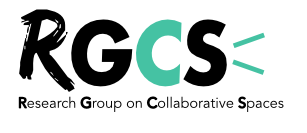Presentation of Kaunas as RGCs chapter
Prof. Vladislav V. Fomin, vvfomin@gmail.com
Viktorija Janavičienė, Viktorija.Janaviciene@knf.vu.lt
The city of Kaunas is the second largest Lithuania‘s city. Kaunas is located at the confluence of the two largest Lithuanian rivers, surrounded by the hills and situated at the crossing of international roads going North to South (Tallinn to Warsaw, to Berlin) and East to West (Minsk to Klaipeda). Due to its geographical position, Kaunas is Lithuania‘s most important center of multi-modal communication.
The city is famous for its Interwar architecture which was awarded the European Heritage label and is on its way to UNESCO. Kaunas is the only city in the world where so much of the style of the buildings has survived to the present day. The city keeps the authentic spirit of the country‘s national character alive.
Kaunas, also called the temporary capital city of Lithuania, was chosen as the



